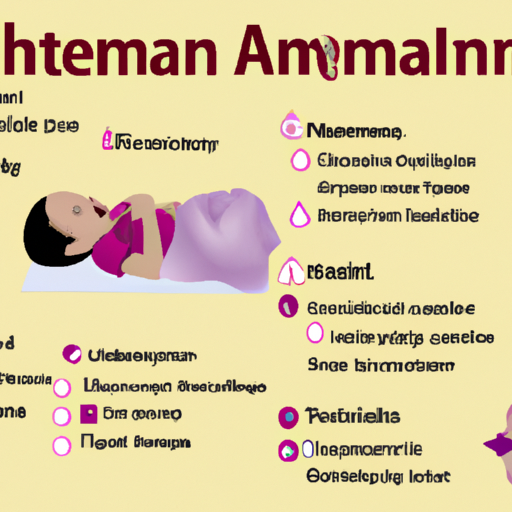Uncategorized
Symptoms, Causes, and Treatment of Anemia After Childbirth
- Experience Dizziness or Weakness After Delivery?
- Consider Clinical Trials for Anemia
- What is Postpartum Anemia?
- Symptoms of Postpartum Anemia
- Causes of Postpartum Anemia
- Diagnosing Anemia After Pregnancy
- Risk Factors for Iron Deficiency Anemia After Pregnancy
- Complications of Anemia After Pregnancy
- Treating Postpartum Anemia
- The Lowdown
- Frequently Asked Questions
Experience Dizziness or Weakness After Delivery?
Are you experiencing dizziness or weakness after delivery? This could be a result of poor diet or excessive blood loss during delivery. Postpartum healthcare is crucial. One condition that may arise after childbirth is postpartum anemia. In normal deliveries, up to 24% of women with no other major health concerns experience postpartum anemia. Understanding the causes and possible treatments of this condition is important for women who show signs of this type of deficiency.¹
Consider Clinical Trials for Anemia
We make it easy for you to participate in a clinical trial for Anemia, and get access to the latest treatments not yet widely available – and be a part of finding a cure.
What is Postpartum Anemia?
Anemia occurs when there are low levels of hemoglobin in a person’s blood, with iron deficiency as one of the most common types of nutritional anemia. During postpartum, or the approximate six week period immediately after childbirth, new mothers may experience postpartum anemia due to blood loss during delivery or due to continued anemia from before pregnancy. Insufficient iron consumption in your diet or through supplements can also contribute to postpartum anemia.
Symptoms of Postpartum Anemia
The body undergoes massive changes if there is a drop in hemoglobin and iron levels. Common symptoms of postpartum anemia can include:
- Fatigue
- Palpitations
- Breathlessness
- Depression
- Pale skin
With treatment, these symptoms would be expected to disappear.
Causes of Postpartum Anemia
Common causes of postpartum anemia include:
- Antenatal anemia
- Peripartum blood loss
- C-section
Diagnosing Anemia After Pregnancy
The diagnosis of postpartum iron deficiency anemia relies on a full blood count, including serum ferritin, hemoglobin, and serum soluble transferrin receptor. These appear to be proper indicators of anemia and iron status one week after delivery. On the other hand, serum transferrin saturation appears to be an unreliable indicator of anemia and iron status several weeks postpartum.
Risk Factors for Iron Deficiency Anemia After Pregnancy
Common risk factors for iron deficiency postpartum anemia include:
- Previous anemia
- Multiple pregnancies
- Heavy menstrual periods
- Poor diet
- Medical conditions that affect iron absorption or use
Complications of Anemia After Pregnancy
Postpartum anemia should be treated as soon as possible to avoid risks and complications for the mothers. Postpartum anemia is linked with poor quality of life, depression, emotional instability, and reduced cognitive abilities. It also constitutes a serious health problem for women of reproductive age.
Treating Postpartum Anemia
Anemia resulting from low iron levels needed for red blood cell production necessitates supplementation. Alternatively, your doctor may recommend taking iron supplements to increase your iron intake. Treatment may come in the form of iron tablets or as a solution injected intravenously. If the anemia is acute and causes severe symptoms, an alternative treatment for postpartum anemia is restoring red blood cell levels via transfusion, using blood from a blood donor. However, this is only a temporary measure. It is important that the healthcare provider explains the different treatment options available and recommends the most suitable.
The Lowdown
Postpartum anemia is associated with fatigue, palpitations, and breathlessness. The common cause of postpartum anemia is excess blood loss and iron deficiency anemia before or during pregnancy. Common symptoms of postpartum anemia include fatigue, depression, pale skin, etc. Fortunately, postpartum anemia is treatable, mainly by iron supplementation. It’s recommended to visit your doctor immediately if you notice any signs and symptoms of postpartum anemia.
Frequently Asked Questions
- What is iron deficiency anemia?
Iron deficiency anemia is caused by a lack of sufficient hemoglobin, which is important for the transportation of oxygen throughout the body. - How does pregnancy affect iron deficiency anemia?

 Skip to content
Skip to content


